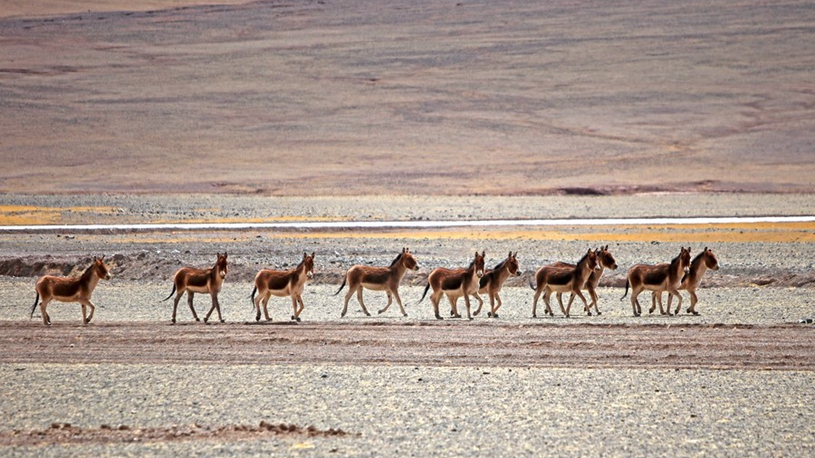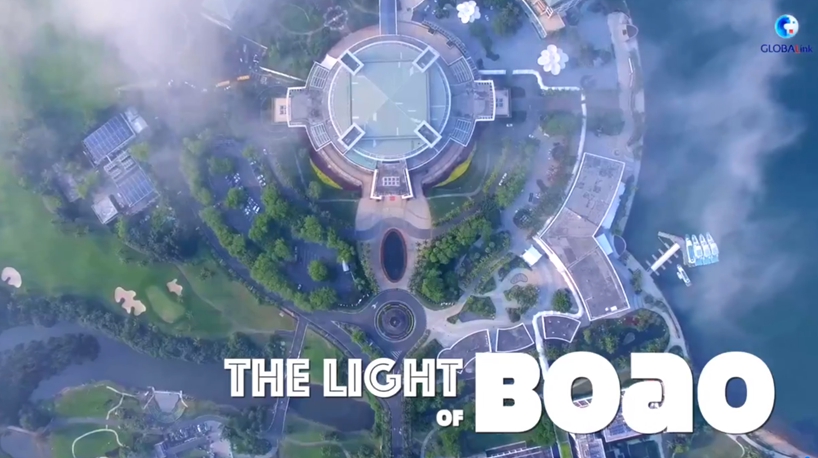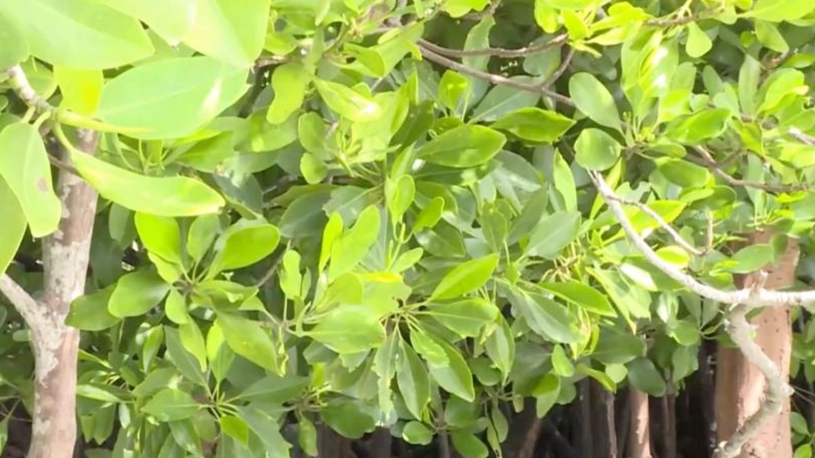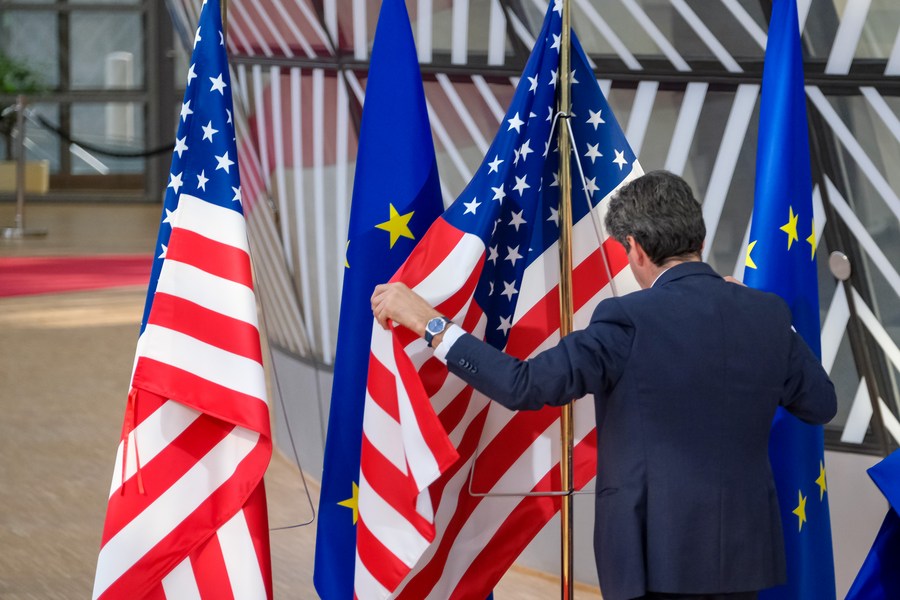
A staff member hangs a U.S. national flag before U.S. President Joe Biden arrives for the European Council meeting in Brussels, Belgium, March 24, 2022. (Xinhua/Zhang Cheng)
"Sanctions never work," said Michele Geraci, former undersecretary of state at the Italian Ministry of Economic Development.
"To solve this issue, we have to use diplomacy with Russia. We don't just need to go to Kiev. We need to go to Moscow."
ROME, April 23 (Xinhua) -- The eastward expansion of the U.S.-led North Atlantic Treaty Organization (NATO) toward Russia is a major root cause of the ongoing conflict between Russia and Ukraine, which could take a heavy toll on the European economy, an Italian economist has said.
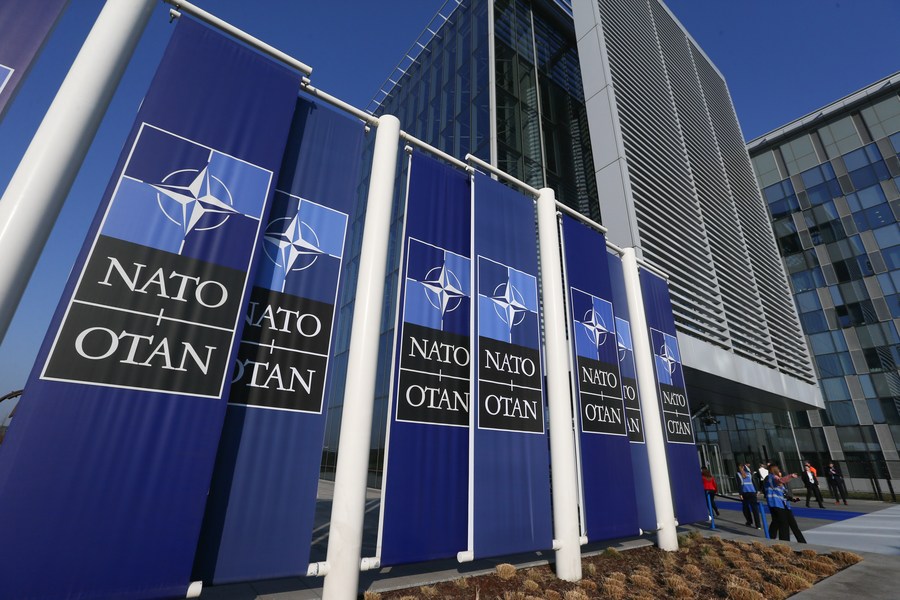
Staff members work at the NATO Headquarters in Brussels, Belgium, March 24, 2022. (Xinhua/Zheng Huansong)
NATO EXPANSION RED LINE FOR RUSSIA
Michele Geraci, former undersecretary of state at the Italian Ministry of Economic Development, told Xinhua in an exclusive interview that the military alliance's moves have created two main problems for Russia.
"From the Russian point of view, NATO's expansion into eastern Europe is a breach of a promise" made in the 1990s, Geraci said.
"Second, Russia considers this expansion a threat to its territorial integrity and national security, so President (Vladimir) Putin for the last ten years has been saying that this is not acceptable, and that NATO has crossed a red line."
"Every country has its own red lines. For Russia, the red line was having NATO at its borders," he said.
NATO has gone through five rounds of enlargement to the east since 1999, increasing the number of its members from 16 to 30 and reaching the Russian border.
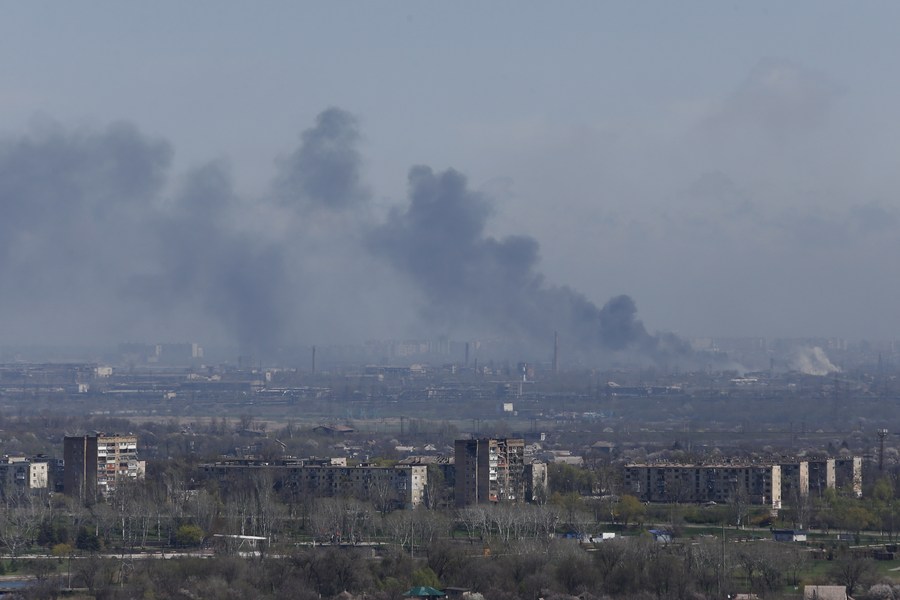
Photo taken on April 20, 2022 shows a view of the Azovstal plant in the port city of Mariupol. (Photo by Victor/Xinhua)
EUROPEANS PAYING HIGH PRICE INSTEAD OF U.S.
The ongoing Russia-Ukraine conflict is in a way "a proxy war between Russia and the United States ... which is fought in Europe," he said.
"Now the cost for the United States is minimal. The sanctions are hurting the Europeans ... The incentive for the United States to finish (the conflict) quickly is not really there, because they (the Europeans) are paying the highest price," Geraci noted.
Amid the escalating conflict, the United States has been stoking tensions in the region, shipping weapons into Ukraine and pushing its allies to impose sweeping sanctions against Russia.
"The European Union (EU) has not a red line and a foreign policy -- this puts us in a very weak position," he said.
"Our concerns and interests are in conflict, because we are allies of the U.S., but the economic interests and even the foreign policy of the EU are not always those of the U.S."
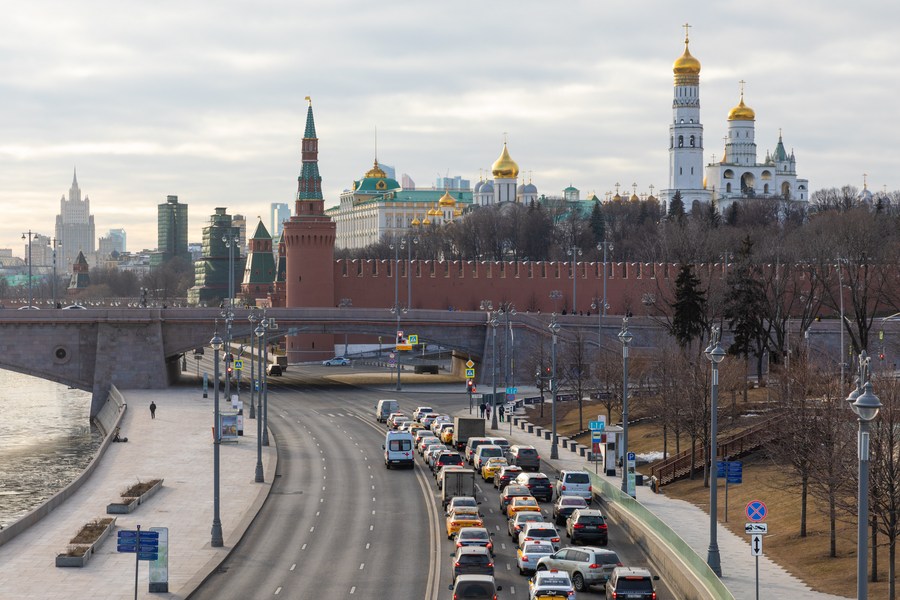
Photo taken on March 10, 2022 shows the Kremlin in Moscow, Russia. (Xinhua/Bai Xueqi)
EUROPE TO BE WEAKER CUTTING OFF TRADE WITH RUSSIA
The Russia-Ukraine conflict could lead to "a weaker Europe because the economy there could take a serious hit."
In the medium and long term, if Europe loses Russia as a trading partner, and they reconcile after the conflict ends, Europe will suffer, he said.
"We are imposing sanctions on energy products thinking that these would hurt the Russian economy. However, they would hurt the EU's economy more," he said, noting that Italy, Germany and a number of smaller countries in eastern Europe will be stranded.
By way of example, he cited EU's ban on the export of luxury goods to Russia, which would "hurt brands like Gucci and Prada."
"We are doing everything wrong," he warned. "We are imposing export bans, which would only hurt us."
In 2021, Russia was the EU's fifth-largest export and third largest import destination, according to Eurostat, the EU's statistical office.
Trade in goods between the EU and Russia totaled 257.5 billion euros (279.4 billion U.S. dollars) in 2021.
"Sanctions never work," Geraci said. "To solve this issue, we have to use diplomacy with Russia. We don't just need to go to Kiev. We need to go to Moscow." ■






